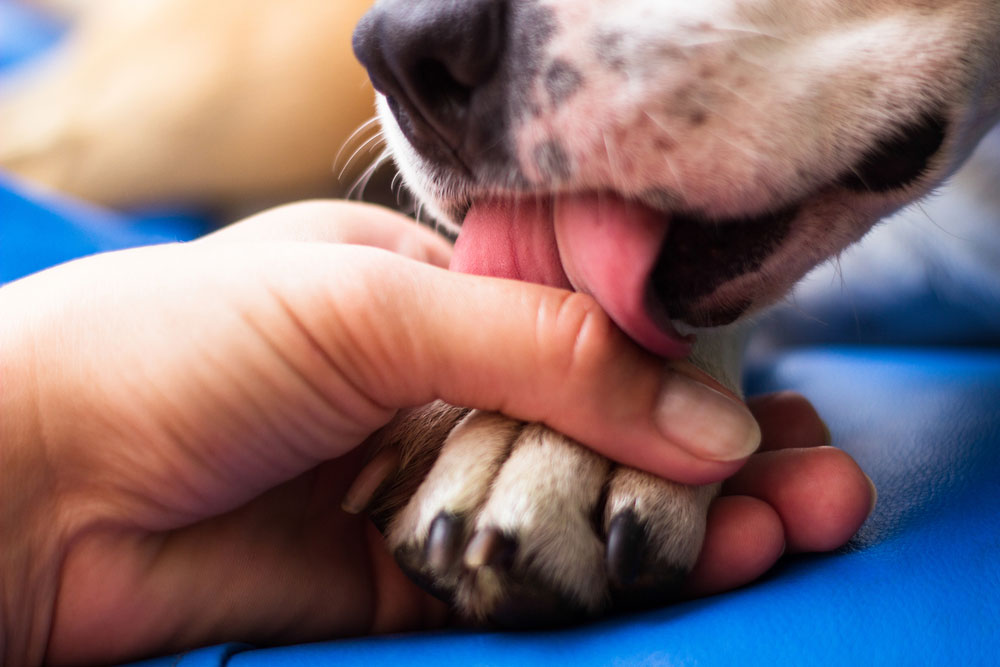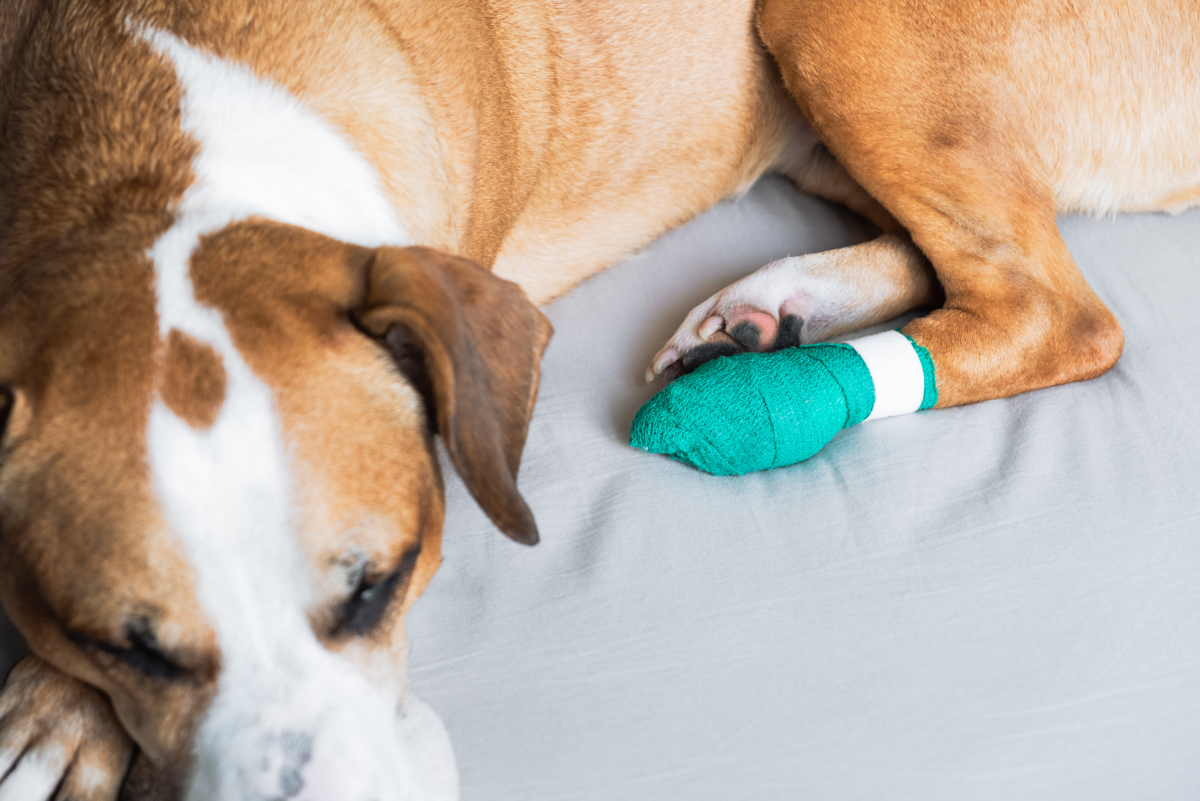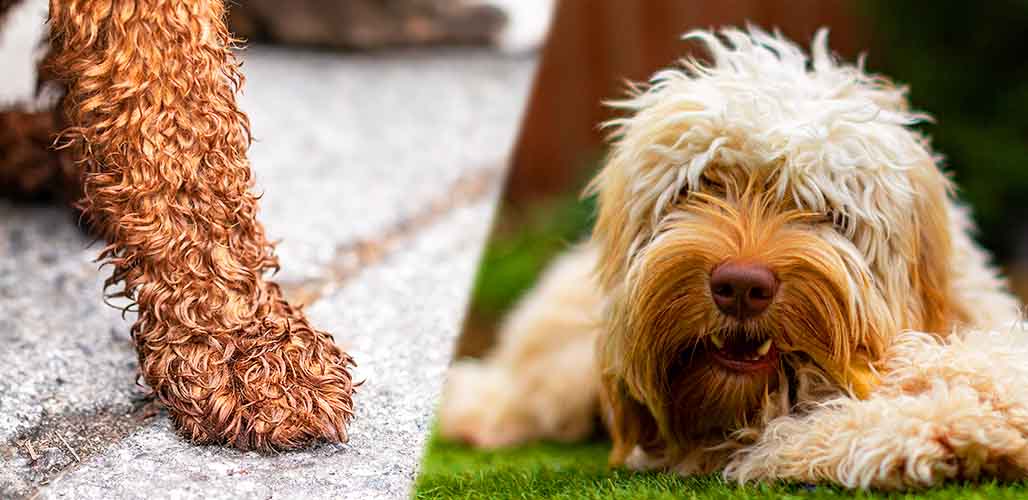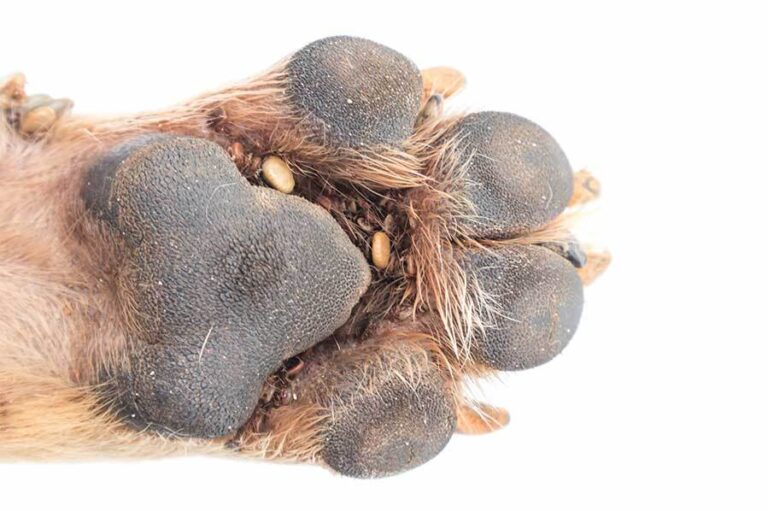How To Stop Dogs From Chewing On Their Paws

Persistent paw-licking and chewing in dogs can be more than just a quirky habit; it's often a sign of underlying discomfort or a deeper medical issue. Owners across the country are increasingly seeking solutions to this common canine behavior, which can lead to secondary infections, skin damage, and considerable distress for their furry companions.
This article will explore the various reasons behind paw chewing and offer practical strategies, derived from veterinary advice and scientific research, to help owners address this issue effectively and improve their dog's well-being.
Understanding the Root Causes
The key to stopping paw chewing lies in identifying the underlying cause.
Allergies, both environmental and food-related, are a leading culprit, according to the American Veterinary Medical Association (AVMA). These allergies trigger inflammation and itching, leading dogs to seek relief through chewing and licking.
Allergies and Irritants
Environmental allergens like pollen, dust mites, and mold can cause atopic dermatitis, resulting in itchy paws. Food allergies, although less common, can also manifest as skin issues, with common culprits including beef, chicken, and wheat, according to studies published in the Journal of Veterinary Dermatology.
Irritants such as harsh chemicals found in cleaning products or lawn treatments can also contribute to paw chewing.
Parasites and Infections
External parasites like fleas and mites are well-known causes of itching, prompting dogs to chew at their paws for relief. Bacterial or fungal infections, often secondary to underlying allergies or injuries, can also cause significant discomfort and lead to paw chewing.
Behavioral and Psychological Factors
Sometimes, paw chewing is not related to a physical ailment but rather stems from behavioral or psychological issues.
Anxiety, boredom, and stress can manifest as repetitive behaviors, including paw chewing, as documented in research from the American Society for the Prevention of Cruelty to Animals (ASPCA).
Practical Strategies to Stop Paw Chewing
Once the underlying cause is identified, implementing a comprehensive approach is crucial to effectively manage and stop the behavior. This involves medical treatments, environmental adjustments, and behavioral interventions.
Medical Interventions
Consulting with a veterinarian is the first and most important step.
They can conduct allergy testing, skin scrapes, and other diagnostic tests to pinpoint the root cause of the chewing. Depending on the diagnosis, the vet may prescribe medications such as antihistamines, corticosteroids, or antibiotics to alleviate itching, reduce inflammation, or treat infections.
For parasite infestations, appropriate flea and tick preventatives are essential.
Environmental Adjustments
Making changes to the dog's environment can significantly reduce exposure to allergens and irritants.
Regularly washing the dog's bedding, using hypoallergenic cleaning products, and avoiding walking the dog in areas treated with pesticides can help minimize skin irritation. Consider wiping the dog's paws with a damp cloth after outdoor walks to remove potential allergens.
Behavioral Interventions
If the paw chewing is behavioral, addressing the underlying anxiety or boredom is key.
Provide plenty of exercise, mental stimulation through puzzle toys, and positive reinforcement training to redirect the dog's attention away from its paws. Anxiety vests and calming aids, under the guidance of a veterinarian or certified behaviorist, may also be beneficial.
Protective Measures and Home Remedies
While addressing the root cause, protective measures and home remedies can provide temporary relief and prevent further damage to the paws.
Elizabethan collars, or "cone of shame," can prevent the dog from physically accessing its paws, giving the skin time to heal. Bandaging the paws can also deter chewing and protect open wounds from infection. However, it is important to ensure that the bandages are changed regularly and that the area remains clean and dry.
Some owners find relief using natural remedies like Epsom salt soaks or applying coconut oil to the paws. However, it's crucial to consult with a veterinarian before using any home remedies, as some ingredients may exacerbate the problem or be harmful to the dog.
Long-Term Management and Prevention
Stopping paw chewing is often an ongoing process that requires consistent effort and monitoring.
Regular veterinary check-ups, proactive allergy management, and maintaining a stimulating and enriching environment are crucial for preventing recurrence. Being vigilant about potential triggers, such as changes in diet or exposure to new environments, can help owners address issues early before they escalate.
By understanding the various causes of paw chewing and implementing a multi-faceted approach, owners can significantly improve their dog's comfort and quality of life. Early intervention and proactive management are key to preventing chronic paw chewing and ensuring a happy, healthy life for your canine companion.


















